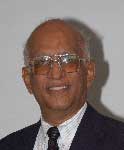 |
 |
Future Workforce
By : Jim Pinto, Work in a central place, at a set time remains only as a legacy of the past. Technology has brought the freedom and power to access information anywhere, at any time, so that work is becoming untethered from central locations. The future workforce will be global, distributed, collaborative and connected.
June 2010
|
 Automation technology, together with the emergence of offshore workers equipped with increasingly sophisticated technology tools, will continue to move up the food chain, steadily encroaching on higher-paying, higher-skilled jobs. So, where and how will the future workforce be employed?
Automation technology, together with the emergence of offshore workers equipped with increasingly sophisticated technology tools, will continue to move up the food chain, steadily encroaching on higher-paying, higher-skilled jobs. So, where and how will the future workforce be employed?
The archetype of the factory—work that needs to be done in a central place, at a set time—remains only as a legacy of the past. Technology has brought the freedom and power to access information anywhere, at any time, so that work is becoming untethered from central locations. It is becoming more adaptive, more informal and less focused on local hierarchies and pre-arranged plans. Technology facilitates flexible schedules. It reduces, or even eliminates, commuting time and related energy costs. Work increasingly will become integrated with other facets of life, providing more and broader levels of personal satisfaction. Social networks ariseIn the past, human interaction seemed to be the most effective with face-to-face contact. Today, technology makes people significantly more effective by providing tools for communications and collaboration—witness the rise of social networking. Collaborative work such as "wikis" produce vastly superior results, and this is flipping the ratio of individual to collaborative work from the old 80/20 to a new 20/80.Communication patterns are already changing quickly. Today, people can work well together without much, if any, face-to-face interaction or discussions. Asynchronous e-mail provides improved thinking styles—deliberate instead of spontaneous, with automatic documentation of discussion threads. In many collaborative jobs, workers e-mail or text-message each other effectively. Outsourcing will be common, with "offshoring" becoming immaterial; the best person for the job will do the job, and location will be irrelevant. People will redefine their own jobs, doing work at home and bringing home (child-care and chores) to work. More companies will engage in "crowd sourcing"—piecing out jobs, or even parts of jobs, to whoever can and wants to do them, so that the "labor" market will begin to operate more like match-ups on eBay than advertisements on Monster.com. Jobs in the future will have to be more meaningful. Pay won't be as important as job satisfaction. A major change is the interest in spirituality. It's not about religion, but more about ethics and doing the right thing. The openness of connections will increasingly demand ethical behavior. Ethics will be taught and enforced broadly with the dispersed workforce. With the graying of the workforce, business will pay attention to what older workers want and how to recruit them. A recent study sponsored by AARP (American Association of Retired Persons) showed that many seniors plan to work in some capacity during their retirement years, not only for money, but also for intangible benefits such as enjoyment and a sense of purpose. The convergence of several trends—declining births, retiring baby boomers, and expected business growth—will create more jobs than there will be workers to fill them. The problem will be exacerbated by the shortage of skilled, educated workers. This is already true in manufacturing and many other technical fields. Warnings are forecast about the need for knowledgeable, well-trained workers in many job categories, such as information technology and the global-energy and electrical-utility industries. Shortages are expected in the global competition for managers, engineers, technicians, skilled craftspeople and front-line workers, mostly jobs requiring a college degree or technical education. Changes will emerge on a broad front, from better technology and skills training in secondary schools to coordinated national workforce policies. Problems create their own solutions. The future workforce will be global, distributed, collaborative and connected. 
|
 Pinto's Points How to win in the Automation Business Go shopping - books, electronics, CD/DVD Selected advertising coming here. Contact Jim Pinto for rates. |
Return to Index of all JimPinto Writings

 Return to JimPinto.com HomePage
Return to JimPinto.com HomePage
If you have ideas or suggestions to improve this site, contact: webmaster@jimpinto.com
Copyright 2006 : Jim Pinto, San Diego, CA, USA
